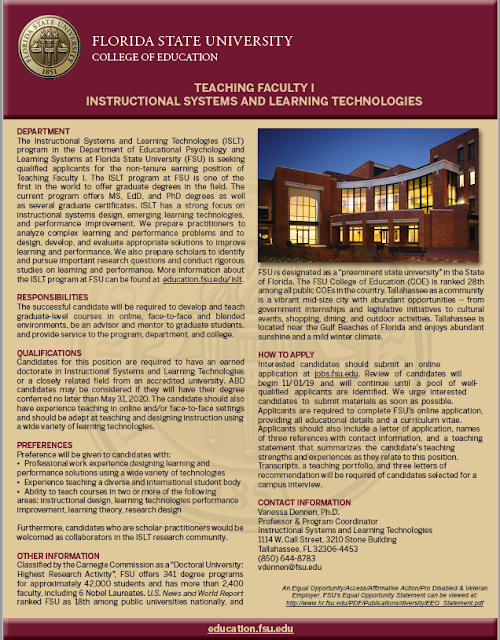 |
Dr. Roger Kaufman
|
Dr. Roger Kaufman, Professor Emeritus of Instructional Systems at Florida State University, is well known for his contributions to the fields of needs assessment and strategic thinking and planning. Kaufman, currently resides in Tallahassee, FL with his wife, Jan, who he credits with much of his success.
Recently, ISLT doctoral student Kari Knisely caught up with Kaufman to learn more about his professional journey, accomplishments, and memories about his time at FSU.
Kaufman’s work has focused on societal or mega impacts of planning and needs assessment, as well as macro (organizational level) and micro (individual level) impacts. Kaufman shared two formative stories about events that helped guide his thinking in this area. First, he discussed a conversation with his father, a mathematical physicist who studied at MIT:
I remember him one day telling me that the world is like calculus. The first class you take is always differential and the second class you should learn is integral. That conversation stuck with me and I started seeing things not from the pieces, but the wholes and the integration of the pieces into the whole. It helps me to see things not as individual pieces, but as wholes that must go together.
He also gleaned insight from talking with his young son:
One day, I was riding in my car in southern California and my son asked me a question. I replied, and he asked why. Well, he kept asking “why” and after 3-4 responses, I could not come up with any other answers to his question. His continuous asking of “why” helped me to see that we all exist as means to ends to add value to our shared society.
Kaufman continues to ask why. He says it is not sufficient to consider how to do things or what we should be doing, but instead it is necessary to ask why we do what we do. To that end, Kaufman expressed a concern that the field is focusing on solutions that are cheaper, faster, and better, and accepting those internal organizational goals as good enough. He thinks the field should focus more broadly on benefits to society rather than narrowly on workplace learning.
Fondest Memories and FSU Accomplishments
Kaufman’s fondest memories of his time at FSU are working with graduate students and helping the university engage in strategic planning. He has enjoyed watching his former students go out and make the world a better place by applying mega planning.
Broader Impacts of Professional and Scholarly Work
While FSU clearly benefited from Kaufman’s contributions to the university, his accomplishments have spread throughout society more broadly. One might say he has had ‘mega’ influence in the field, by authoring 41 books and more than 300 articles, and consulting in over 50 countries. He is honored each year with an award named after him, ISPI's Roger Kaufman Award for Societal Impact.
Kaufman commented that what you get out of a learning experience will reflect what you put into it. He recommends that students always think, challenge, and ask “why?” like his son did. He notes that what students learn from their faculty members and academic programs is only part of a full educational experience. There is much to be learned from mentors, from other disciplines, and also through getting involved in professional organizations. Above all else, Kaufman notes that these sources should be teaching you HOW to think, not WHAT to think.



